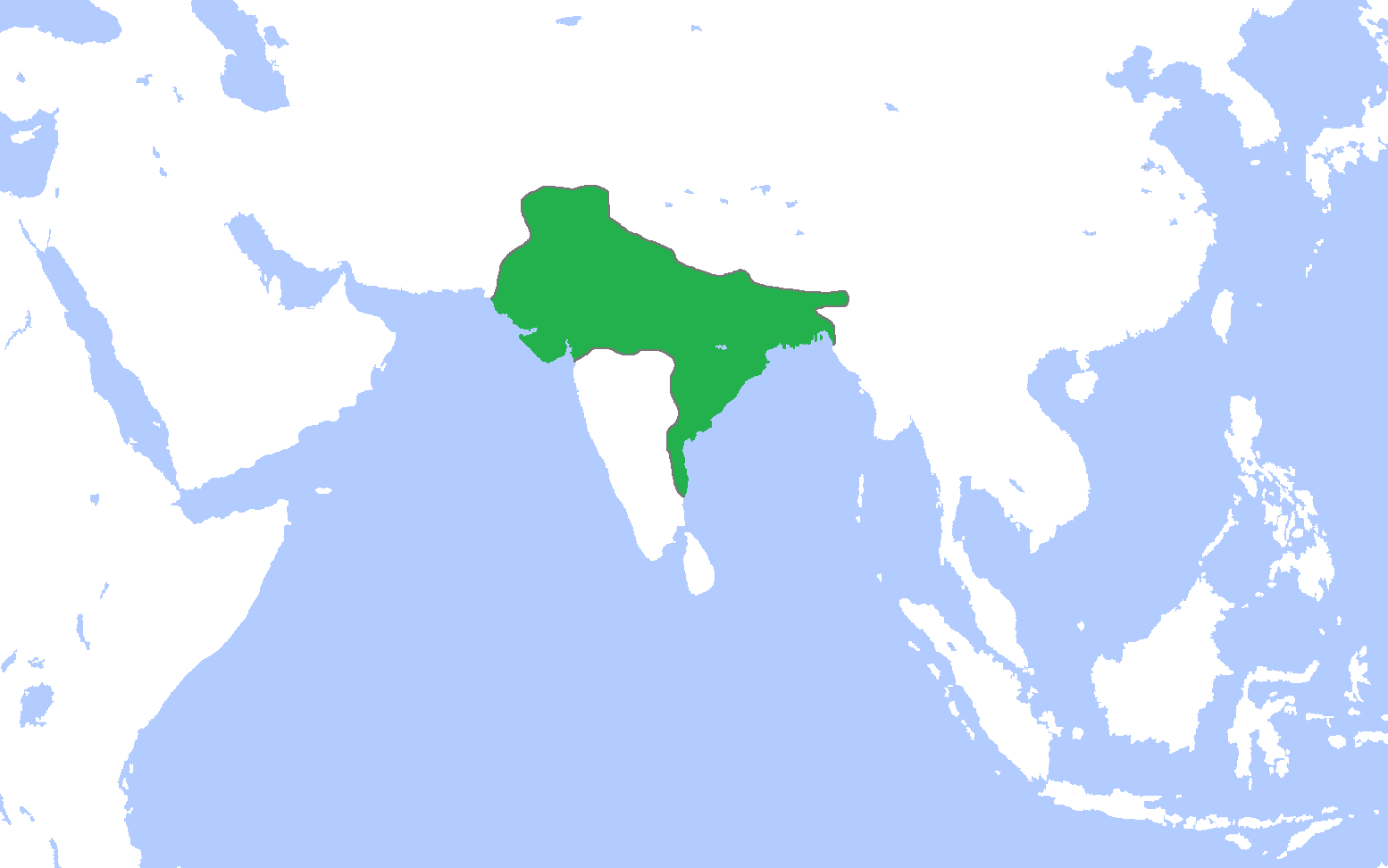More languages
More actions
| Gupta Empire | |
|---|---|
| 320–550 | |
 | |
| Capital | Pataliputra |
| Dominant mode of production | Feudalism |
| Government | Monarchy |
| Area | |
• Total | 3,500,000 km² |
The Gupta Empire was a state in ancient India. It was the second attempt to unite India but was fragile due to a lack of centralization and quickly collapsed.[1]
History[edit | edit source]
The Gupta Empire began in the Ganges valley like the earlier Maurya Empire. Three successive warrior-kings, Chandragupta, Samudragupta, and Chandragupta Vikramaditya, expanded it across the northern Indian plain and then into central and southern India. The empire collapsed in the sixth century when the Huns invaded.[1]
Economy[edit | edit source]
The Gupta Empire was based on feudal land ownership and tribute. Peasants paid one-tenth to one-sixth of their harvest as taxes.
Agriculture was highly organized and irrigation was widespread. India participated in a global market with Arabia, Western Asia, and China and traded metals, gems, textiles, spices, salt, and exotic animals. Banks and money-lending were common, and guilds regulated work.[1]
Government[edit | edit source]
Village councils and courts managed local affairs, and local chieftains and princes had considerable autonomy. Many officials received land in exchange for administrative work and military service.[1]
Religion[edit | edit source]
Hinduism was the religion of the ruling class and upheld a traditional and metaphysical order based on caste and state. Buddhism applied to all classes and advocated for a moral lifestyle but was later corrupted to justify social inequality.[1]
References[edit | edit source]
- ↑ 1.0 1.1 1.2 1.3 1.4 Neil Faulkner (2013). A Marxist History of the World: From Neanderthals to Neoliberals: 'The Medieval World' (pp. 64–65). [PDF] Pluto Press. ISBN 9781849648639 [LG]
